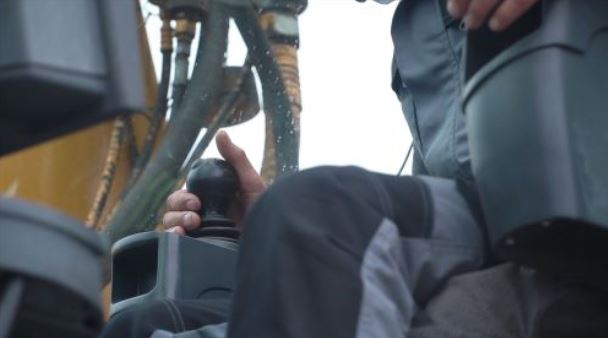
Many people dream about operating heavy machinery for a living. You only need to look at all the toy cranes and bulldozers lining the aisles at your local department store to get an idea of how popular this dream is. Many people imagine themselves driving cranes, even as very small children. Comparatively few people, however, choose to pursue this dream practically. That’s because it’s not as easy as it looks.
Operating heavy equipment requires a great deal of training, but it’s certainly an attainable dream, provided you’re willing to put the time and work in. It’s not just as simple as getting behind the controls of a crane and practicing on your own, however. You need to find a good school that will teach you everything you need to know about operating heavy equipment.
Of course, if you’re reading this article, you probably know all of that. You may also know that most employers won’t even consider hiring you to operate their crane equipment if you aren’t certified by one of the four OSHA-recognized organization certifications.
The four are the National Commission for the Certification of Crane Operators (NCCCO), the Crane Institute of America Certification (CIC), Operating Engineers Certification Program (OECP), and the National Center for Construction Education and Research (NCCER).
Getting Certified
While all employers are different, most of them won’t even give your resume a second look if you aren’t certified. After all, it’s in everyone’s interest that anyone operating a crane or other powerful piece of machinery is fully informed in every element of equipment safety.
Getting certified requires both a written exam and a practical one. Technically, anyone can apply to take these tests and receive a certification if they pass, but practically speaking, you won’t be able to pass the without on-the-job experience. Typically, this experience is accumulated under the supervision of a skilled instructor at a good school.
What Does The Exam Test For?
It’s all about safety and understanding how to safely operate the crane.
OSHA takes safety seriously. If you perform any unsafe acts before or during the test, you’ll be disqualified from continuing. There are several unsafe acts that will result in instant failure. For example, contacting your crane or the surrounding area with the test weight or failing to respond to stop signals given by your examiner. Before you take the test, you’ll want to familiarize yourself with the unsafe acts that will disqualify you from successfully completing the test.
This starts before you ever climb inside a crane. Do you have all your personal protective equipment? Are you using it properly?
There are actually several practical exams, each devoted to a different type of crane. For example, you may take a test using a lattice boom crane or a telescopic boom crane. In many cases, you’ll take several tests, working your way through each type of crane. That’s another benefit a good school will provide. You’ll have plenty of opportunities to work with each type of crane.
Another test you have to pass in order to get your certification is the written test. To pass the written test, you’ll have to read and research the study materials, but at your crane operator school, all material will also be covered during the classroom portion of the course you choose.
Movement Of Test Weights
You’ll be required to perform several different maneuvers with your crane, each involving the movement of test weights. These tasks will be timed. Usually, you’ll have a few minutes to perform each one. You will need to move a weight into a certain area, and sometimes you’ll need to place it inside of a barrel. Dragging your weight or causing it to contact anything will cause you to fail the test.
You’ll also need to be able to use your crane to negotiate obstacles while it’s fully laden. You’ll receive points for your performance in this portion of the test, with points being deducted when you make mistakes.
Hand Signals
Part of being a crane operator is utilizing hand signals, and you’ll be tested on these too. There are many signals that you’ll practice in your crane operator school, and it’s unlikely that you’ll be tested on all of them. Nevertheless, it will be important that you’re equally familiar with all the different hand signals. You can’t be sure which ones your examiner will choose to test you on. There are different hand signals for “hoist and stop,” “raise the boom and stop,” “lower the boom and stop,” and others.
Safe Shutdown
After you have completed all the other elements of the exam, you’ll need to safely shut the crane down. Your examiner may ask you questions regarding how to safely secure your crane at the end of a workday. Points will be awarded based on how accurately you answer these questions.
Finding The Right School
Passing the exam will require a good deal of relevant knowledge and on-the-job experience. That means you’ll need to look for a school that will get you out in the field regularly, practicing on jobsites with various types of cranes. West Coast Training is an example of a school that effectively combines classroom learning with on-the-job training. Critically, our small class sizes mean you’ll get plenty of personal attention from highly experienced instructors.
Pass The Heavy Equipment Exam
While the exams are certainly challenging, attending the right school can help to ensure you take it with the confidence that only experience can bring. You'll be operating that heavy machinery and construction equipment in no time!
